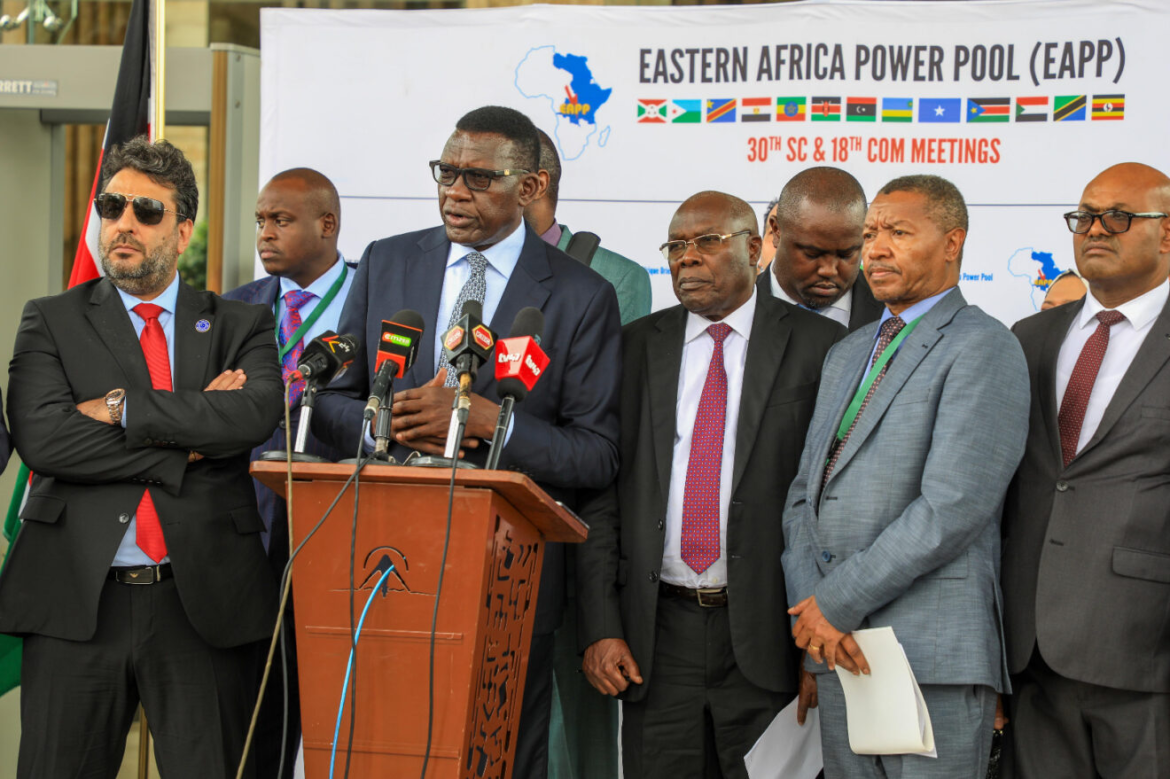KEY POINT
- East Africa Centralized Energy Market to launch in 2025.
- EAPP aims to facilitate cross-border energy trade and improve power supply.
- Centralized energy market expected to reduce costs and increase efficiency.
The Eastern Africa Power Pool (EAPP) has announced plans to establish a centralized energy market for East Africa by 2025. This initiative aims to create a unified system for regional power trade, allowing countries in the region to buy and sell electricity seamlessly. According to African Energy, this move is expected to boost power supply, reduce costs, and enhance energy access across member states.
The centralized market will enable East African countries to integrate their national grids, facilitating the exchange of excess power from countries with a surplus to those experiencing a deficit. This cross-border power trade is seen as a key step toward ensuring energy security and stability in the region.
The EAPP, a regional organization established in 2005, includes members such as Kenya, Ethiopia, Uganda, Rwanda, Burundi, Tanzania, South Sudan, and the Democratic Republic of Congo (DRC). By 2025, these nations are expected to link their energy infrastructure under one unified market, enabling a smooth flow of electricity across borders.
How the centralized energy market will transform regional power trade
The launch of East Africa’s centralized energy market will fundamentally change how electricity is traded across borders. Under the current system, cross-border energy trade is fragmented, with power purchase agreements signed on a bilateral basis. However, the new centralized system will create a single electricity trading platform where buyers and sellers can trade energy efficiently.
This change will reduce reliance on bilateral contracts, which are often slow to negotiate and limit flexibility. By centralizing the system, the EAPP aims to promote real-time energy trading, allowing for faster and more dynamic transactions. This means that power can be dispatched instantly from one country to another, improving response times during energy crises or shortages.
A centralized energy market also aims to lower electricity costs for consumers. Countries with excess capacity, such as Ethiopia with its Grand Ethiopian Renaissance Dam (GERD), can sell surplus power to neighboring countries, ensuring better utilization of regional energy resources. As a result, electricity prices are expected to become more competitive, benefiting consumers across East Africa.
According to African Development Bank (AfDB), this market will increase energy efficiency, reduce wastage, and create an opportunity for renewable energy integration. The system will enable countries to export excess solar, wind, and hydroelectric energy, fostering a greener and more sustainable energy future for the region.
Opportunities and challenges of East Africa’s new energy market
The establishment of a centralized energy market presents both opportunities and challenges for East Africa. On the positive side, the initiative will help the region meet its growing energy demand. As urbanization and industrialization increase, the ability to source electricity from neighboring countries will enhance the reliability of energy supply. This will attract foreign investment, support industrial growth, and improve living standards.
Another major benefit is the potential to support the energy transition. By creating a system where countries can trade renewable energy, East Africa will reduce its reliance on fossil fuels and align with global climate goals. The system will also encourage private sector investment, with new market entrants bringing in innovation and efficiency.
However, the transition to a centralized market is not without challenges. Differences in energy regulations and policies across member states could delay implementation. Countries will need to agree on market rules, tariffs, and operational procedures to ensure smooth market operations. Moreover, infrastructure gaps must be addressed, especially in regions with weak power grids or insufficient connectivity.
The EAPP has pledged to work with international development partners and regional stakeholders to ensure a smooth rollout. The success of the initiative will depend on timely infrastructure upgrades, harmonized regulations, and sustained political commitment from member states. If successful, East Africa’s centralized energy market could serve as a model for other regions seeking to integrate their energy systems.



